A small group of Indigenous protesters representing several communities nationwide has shunned the push for constitutional recognition, saying the document was invalid and did not apply to them.
Up to 150 protesters gathered in Canberra’s city centre to march to the “tent embassy” outside Old Parliament House, as part of a three-day Freedom Summit on sovereignty for Aboriginal and Torres Strait Islander people.
Many of the dozen or so speakers argued the constitution was a tool of oppression.
“We don’t want to be part of the crown,” one summit delegate, Ella Mundie, said. “We never ceded our land.”
Ben Taylor, a member of the stolen generations and a campaigner on the issue of deaths of Indigenous people in custody, criticised the push for recognition. He heckled other speakers who disagreed, shouting: “Get rid of the constitution.”
One of the original protesters who set up the tent embassy in 1972, Michael Anderson, went even further. “I don’t want to be in that fucking constitution. That constitution isn’t for me,” he told the crowd.
“I don’t want to be Australian. Our people have got to stop saying we’re Australian. If you’re Australian you’ve got those people over there with a rope around your neck pulling you along,” Anderson said.
“We are still being treated like children by our uninvited trespassers,” protest organiser Jenny Munroe said. “The land is ours.”
Recognition is a step towards the “mainstreaming” of Indigenous culture, Gracie Smallwood, a summit delegate from Townsville, said.
But others, such as the John Christopherson, a representative of West Arnhem Land with the Northern Land Council, said recognition was vital.
“It has to come from the Aboriginal people of this country,” he said, adding that recognition did not detract from the 200 years of oppression suffered by Indigenous people.
“What it validates is 40,000 continuous years of our culture,” Christopherson said.
The co-chair of Reconciliation Australia, Tom Calma, told Guardian Australia he thought the views of protesters were not reflective of the broader Indigenous community.
“From what I’ve seen … it’s not a big movement,” he said. “There will be people who do not recognise the crown. That’s their right. They can protest,” he said.
Calma argued constitutional recognition did not preclude possible future treaties or other forms of legal recognition. “A treaty could be the next step,” Calma said.
But he thought the protesters’ push for sovereignty was impractical. “The reality is, as a sovereign nation we couldn’t survive, in my view,” he said.
Tony Abbott reiterated his support for constitutional recognition in his Australia Day address.
The issue has bipartisan support, with Abbott committing to holding a referendum on constitutional reform in May 2017, to mark the 50th anniversary of Indigenous people being granted the vote.
- This article was amended on 27 January 2015. The original version referred to John Christopherson as a West Arnhem Land regional council member.
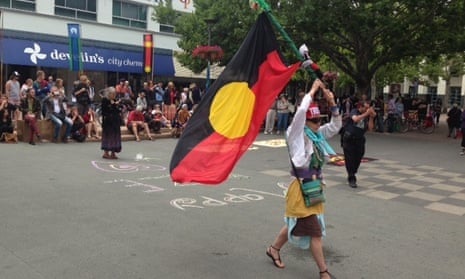

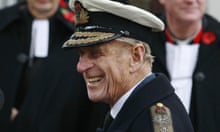
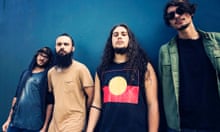

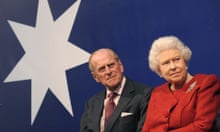
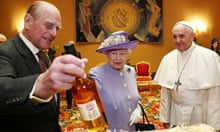

Comments (…)
Sign in or create your Guardian account to join the discussion